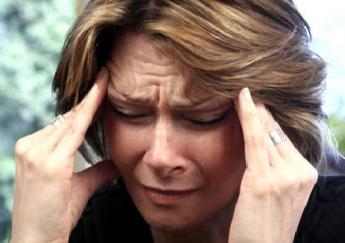Managing stress is a major component to maintaining health. We cannot avoid the things in life that cause us “stress” but there are ways to reduce the impact stress has on our bodies. A little bit of stress can be a good thing as it motivates us to get things done. However, an accumulation of stress can overwhelm and hinder your ability to be productive and make good decisions, not to mention erode your state of health and well-being.
Here are some stress reducing tips that will work for you if you implement them!
Take time to deep breathe. Do not underestimate the power of breathing. When you are feeling stressed, your breathing gets shallow and some people even hold their breath which deprives the brain of much needed oxygen. You can sit quietly for 5-10 minutes and do some deep diaphragmatic breathing or go for a walk out in nature and take some deep breaths of fresh air. It will calm your nervous system down and help you better cope with the situation at hand.
Laugh more. Watch a comedy or funny movie. Read a joke book. Find levity in the situation. Laughter is great medicine. When you feel stressed or find yourself being reactive, your adrenals are secreting stress hormones that have a negative impact on the body. They raise blood pressure and heart rates, increase respiratory rate and blood sugar levels, dilate pupils, and relax intestinal muscles. Laughter has the opposite effect on the body, causing a release of endorphins and lifting your mood.
Journal your feelings. When you bottle up emotions they create an internal volcano that can and will erupt, often coming out in destructive ways. Emotion are just energy in motion and when we release them they cannot harm us. If you do not feel like talking to someone about what is bothering you, then journal your feelings. Write out everything you are thinking and feeling to get them out and let them go so they cannot hurt you.
Get adequate sleep. Sleep has a restorative effect. It also allows you to take a break from ruminating over the daily events. Studies also show that when you turn off TV and other electronics at least an hour before bedtime your quality of sleep improves.
Think positive thoughts. Your mental well-being is just as important as your physical well-being. Our brains do not know the difference between positive and negative thoughts. Negative thinking can cause a release of stress hormones that will drag you down. We cannot control what happens around us, but we can control what we think and say. The more positive our thoughts, the lighter we will feel as energy always follows thought. If you learn to surrender to what is and accept the fact that you are powerless over what is happening around you, you lower your stress response considerably. A lot of people need to be in control or be “right” about everything. If this is you, ask yourself this question. Do you want to be right OR do you want to be happy?
Meditate daily or create a mindfulness practice. Meditation allows us to withdraw from the outer world and tune into our inner world where we can find a sanctuary of peace. It also helps you center and focus on yourself rather than the dramatics outside of you.
Eat wholesome foods. People have a tendency to emotionally eat under stress. The choices are usually simple carbs, sugar, caffeine, and alcohol. These choices just exacerbate the stress on the body. Choose wholesome foods like fresh vegetables, whole grains (gluten-free), fresh fruits, and lean proteins. Add fermented foods to your diet to nourish your digestive system with healthy bacteria which in turn will help keep you feeling good. The gut is considered the second brain so the health of your body and mind is impacted by what we ingest and digest.
Reframe a stressful situation. You cannot change what other people say and do but you can change the way you look at things. When you shift your perspective, you in turn change your emotional response to the situation. The goal is not to set things right but to see things in a better light. “When we change the way we look at the world around us, the world around us changes.”
If, after you have implemented some of these ideas, you are still struggling with the effects of stress physically or mentally, please reach out to me for support. I would be happy to offer you a complimentary consultation to explore how I can help you reduce stress and increase your sense of well-being.



